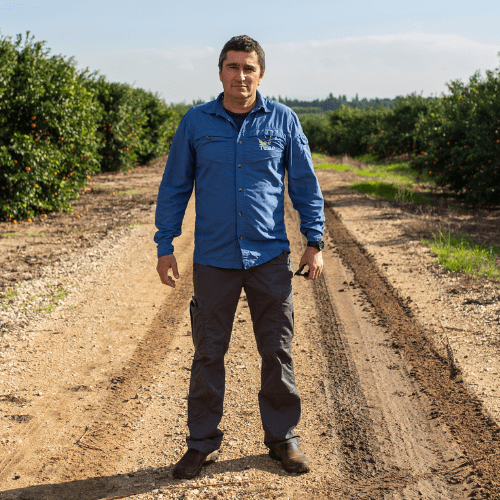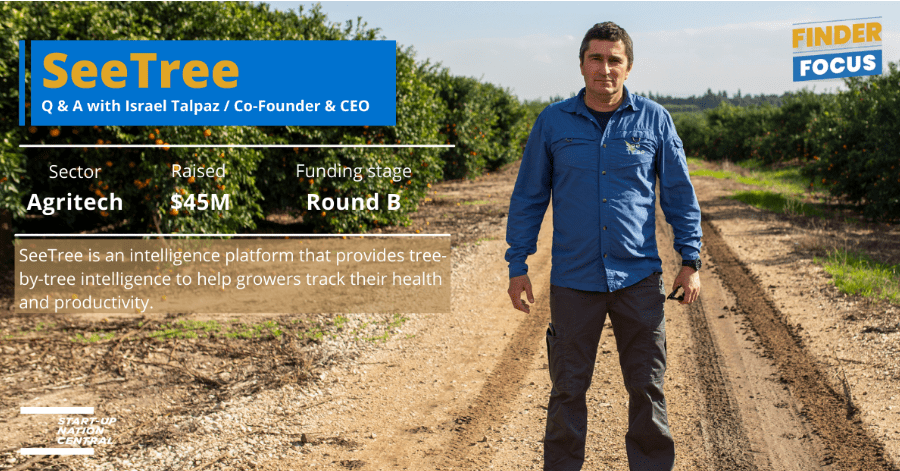
SeeTree is an Israeli AgTech startup that focuses on the optimization of tree growth and production by trees. They aim to provide farmers with data that is crucial for farming operations to improve food production, enhance profitability, reduce losses, and help the environment along the way. Israel Talpaz, the CEO and Co-Founder of SeeTree, has over 30 years of experience in the government sector and is using his technological background to usher in a new era of agricultural efficiency through innovation. Israel recently spoke with Start-Up Nation Central about SeeTree and their mission.
“We will need to feed 2 billion more people in the next 20-25 years while also saving our environment from the negative effects of farming.”
Start-Up Nation Central: What problem did you see in the world that inspired you to create SeeTree?
Israel: The problem is that the quality of data that is available today is basically the same that was available 50 years ago. Data is still based on the eyes and legs of farmers, a process that is manual, personal, and analog – not digital. We need to produce more and more food going forward, and we won’t have more resources, so we need to produce more with less.
Start-Up Nation Central: Why do we need to produce more food?
Israel: The global population is growing. We will need to feed 2 billion more people in the next 20-25 years while also saving our environment from the negative effects of farming. So we need to do better for the environment, produce more food, and pay growers more.
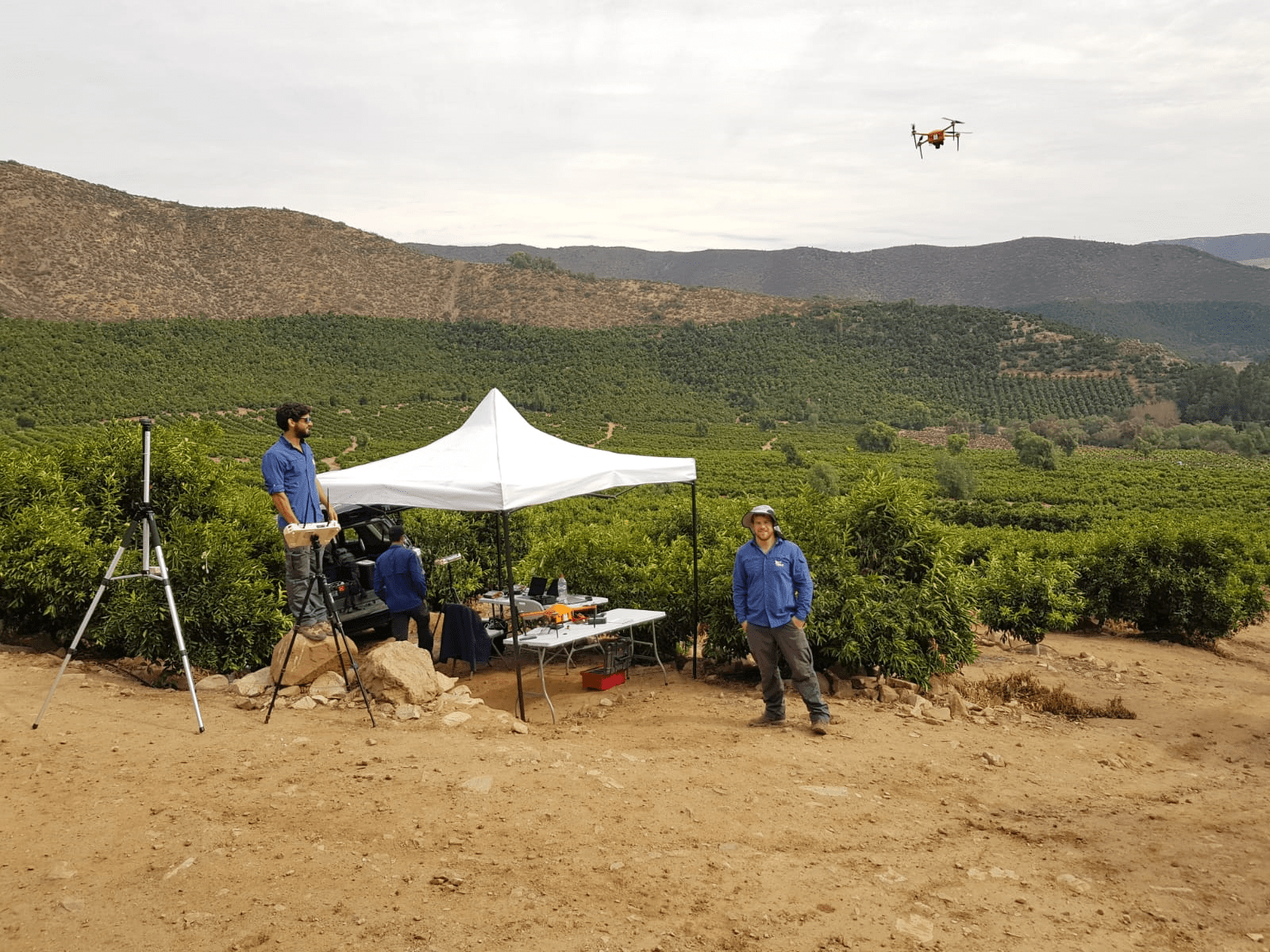
“The good news is we can make it better now , as long as farmers are open to these new technologies.”
Start-Up Nation Central: What’s the solution?
Israel: We believe the solution is data-based. Right now, data is poor quality, outdated, and unorganized. We need to transform data and then transform farming accordingly. There’s both good and bad news regarding data collection. The bad news is the situation today is a mess. The food supply chain doesn’t know what’s happening, and there’s no precise farming. The good news is we can make it better now as long as farmers are open to these new technologies. Innovative technology can solve these issues and catapult production.
Start-Up Nation Central: Are the needs the same across regions for farming?
Israel: Yes. We work today across five continents: North America, South America, Africa, Europe, and Asia. The problem is the same everywhere -including here in Israel: data collection depends on eyes and legs. The best growers collect data on trees in the same way, just with more people — they don’t utilize technology for their decision-making. Due to this, they cannot optimize their bottom line, and they have no network with other farms. Each farm is out for itself.
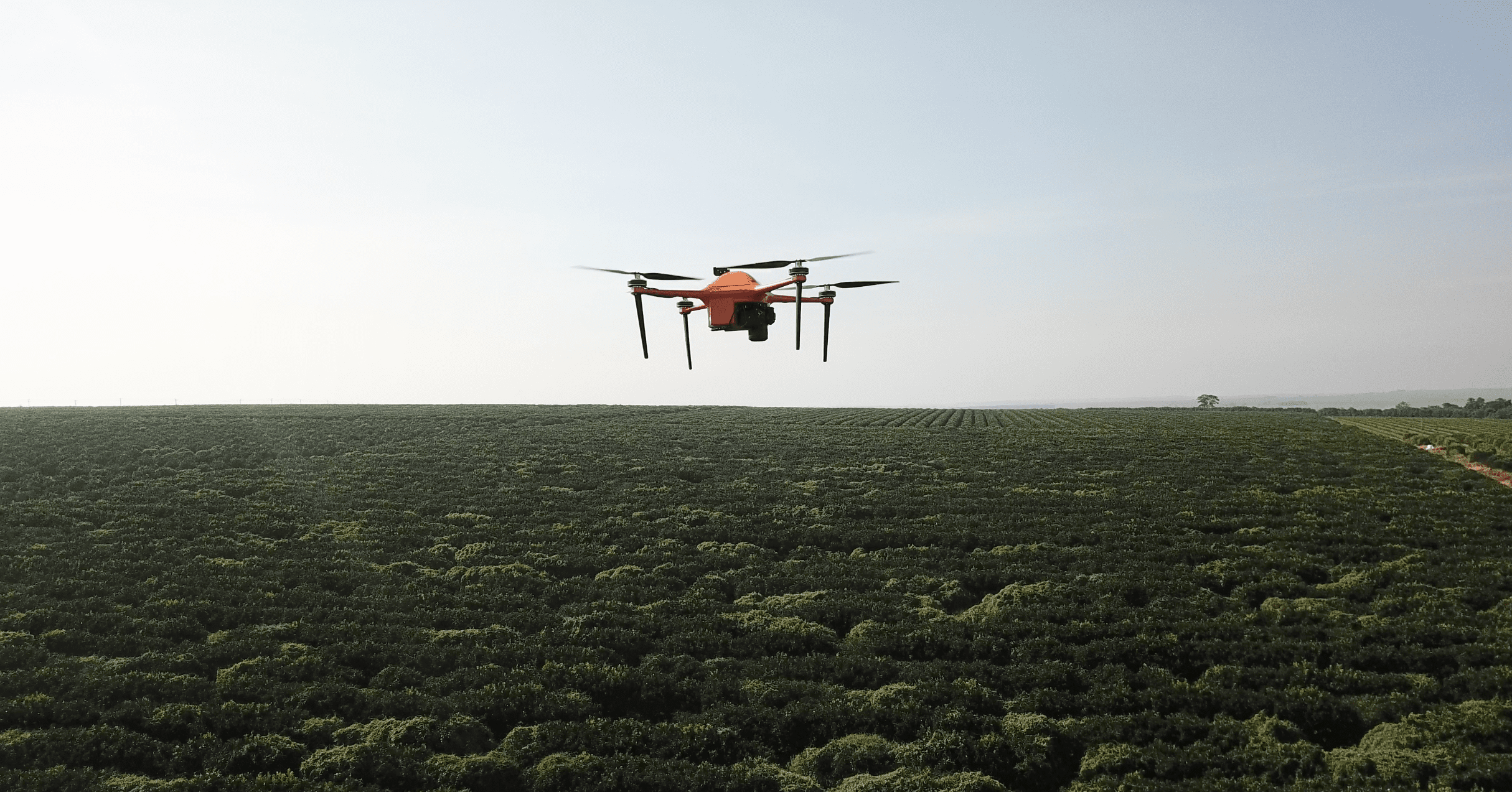
“Just as individual people have discrete dietary requirements, each tree also needs to be addressed independently.”
Start-Up Nation Central: How is working with trees different from working with other agricultural produce?
Israel: Unlike other crops that you have to plant every year, trees get planted once and live for decades. This leads to them being much more individual and unique as they grow and mature, each tree varying from the next — much like people! Just as individual people have discrete dietary requirements, each tree also needs to be addressed independently. Uniform farming as it exists today is a colossal waste! You must measure every single tree using data — remote sensing, drones, planes, satellite imagery, ground vehicles and sensors — and determine specific requirements. That’s what we do.
Start-Up Nation Central: Do the farmers have the capacity to give the tree its needs once they know this?
Israel: Today, they do not. This is a process that will take time but as we’re progressing with our business and spreading awareness of this issue, so too is their capacity. We are developing partnerships with our growers and other companies. For instance, we are partnering with a company for precise crop protection where we use our data to teach their tractors to do variable rate spraying. We have heard farmers call the process of more granular irrigation and farming “subatomic farming.” This process will go through phases and farming will look quite different over the next 3-5 years.

“The farmers need to understand that we’re on this journey together”
Start-Up Nation Central: What is the key to success for you in your business?
Israel: Trust, awareness, and partnerships between the growers, agriculture input providers and us. The farmers need to understand that we’re on this journey together. Once they feel this trust, the farmers start pushing us for solutions, and we usually start with “first aid” for their trees: quick fixes they can implement before moving on to partnerships based on solutions. After that, it’s full-scale optimization based on what we learn from and about the growers’ operations.
Start-Up Nation Central: Why trees?
Israel: My background is 33 years in the world of defense and intelligence, where I specialized in creating solutions for complex issues based on data. The defense industry really became data-driven in the past twenty years, and I was right there in the middle of all of that. So when I retired and reconnected with my family agricultural business, I realized the industry was ripe for disruption. Due to their complexity, trees are the last to be touched in agriculture. Everyone told us to stay away from trees, but this challenge intrigued us, and that’s why we endeavored to build SeeTree! Trees are like production units — they have inputs and outputs for years. Trees are now managed with our systems as digital entities, so we need to digitize each and every tree.
Start-Up Nation Central: What was your first step?
Israel: The first step was setting up a small team. We are three founders: myself; Barak Hachamov, a serial entrepreneur from the high tech scene for whom SeeTree is his ninth venture; and Guy Morgenstern, an experienced engineer and our CTO. The three of us formed a team looking for problems in agriculture, subsequently went to California, attended conferences, and talked with a lot of farmers and relevant players in this field.
Start-Up Nation Central: What was your Eureka moment?
Israel: The first was in the Volcani Institute when we were able to assemble a group of experienced researchers together. The session was lagging and lacking vitality as everyone was tired, but we had one big moment from a simple question: what is the biggest problem you know of in farming? The answer led us down the path to trees.
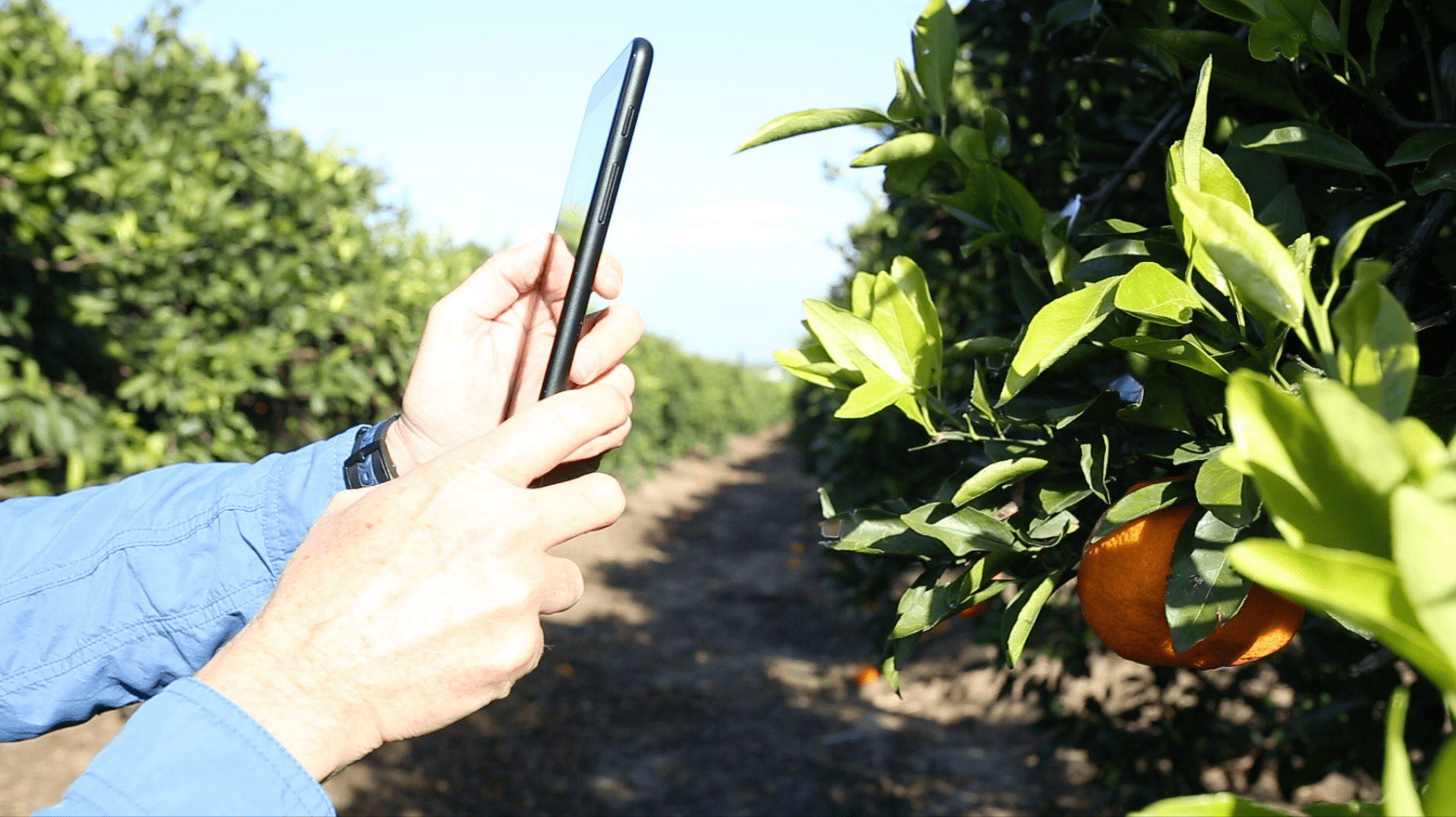
“Everyone told us to stay away from trees, but this challenge intrigued us, and that’s why we endeavored to build SeeTree!”
Israel: Initial funding was problematic. Five years ago, VCs in Ag-tech were not as common, and very few people invested in agriculture or the food industry. Since many VCs look for a one-hit solution, we needed to take our time. We had to gain the trust of farmers, engaging in many free demonstrations. Getting in the door was complicated enough, but the last obstacle was implementation, which required active partnerships.
Start-Up Nation Central: What advice would you give to founders of other resource-heavy startups? How can they overcome the objection that their product is not a simple, scalable solution?
Israel: They have to believe in their vision and not rely on the trends. They should work from the bottom up and stay as lean as possible. They should also engage with customers as fast as possible, even if they are not ready. They should be honest about the fact that they aren’t ready but shouldn’t sit for a year and a half and develop. Get out there and talk to people!
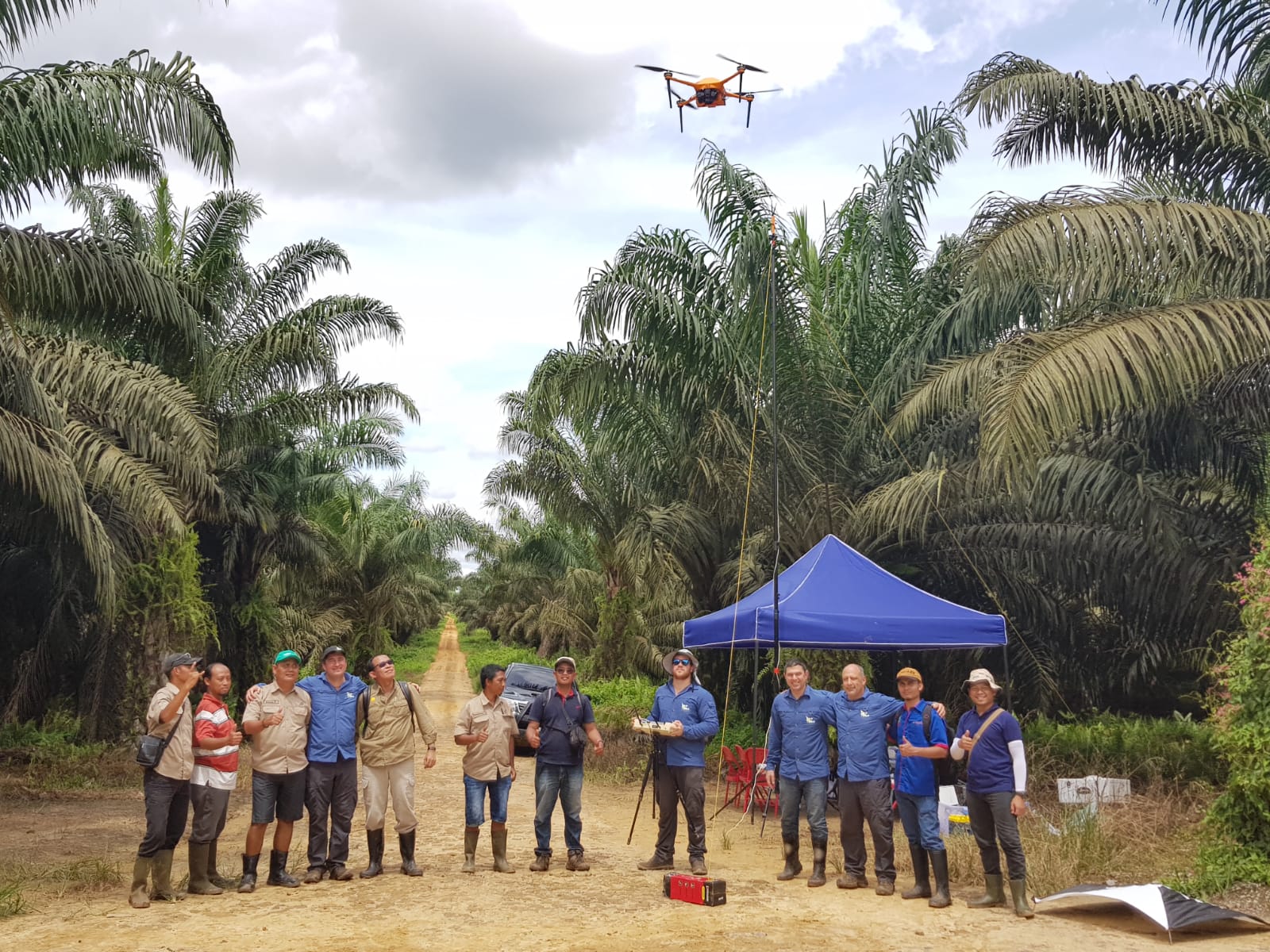
“We want to be the worldwide experts on trees.”
Start-Up Nation Central: What does success look like to you? When will you feel that you’ve “made it”? What will your company look like at that point?
Israel: When we have run full-scale optimization cases for years, that will be a huge sign of success. We want to be the worldwide experts on trees. Everyone growing trees and optimizing their operations using SeeTree – that’s success. We want our legacy to be that SeeTree transformed farming with intelligence. That we took intelligence from the intelligence world and used it to make the world better and greener!
Start-Up Nation Central: What do you think investors and corporate executives around the world should know about Israel?
Israel: They should know that they can trust Israeli teams. We have great ideas, and we can also execute those ideas. The issues we face now are more and more complex, a projected shortage of food, fluctuating prices and diminishing profits for growers, and harch climate challenges, and on top of that, there is a lot of conservatism and mistrust. Let’s try to cooperate more! The area that we lack in the high-tech scene between startups and companies overall is partnerships. We need to create more partnerships and collaborations, but this is quite rare, as it was also rare in the defense world 20 years ago. Foreign investors and executives can explore partnering with Israeli companies and then reap the benefits of productive cooperation.
Start-Up Nation Central: For our global audience, can you recommend a fun activity to do while in Israel?
Israel: The breadth of what you can do in one day is amazing: Jerusalem & Tel Aviv! To go from 3,000 years of rich, multicultural history in Jerusalem and then end the day with a drink on the beach in Tel Aviv, that combination is mind-blowing.
Check out SeeTree on Start-Up Nation Finder.
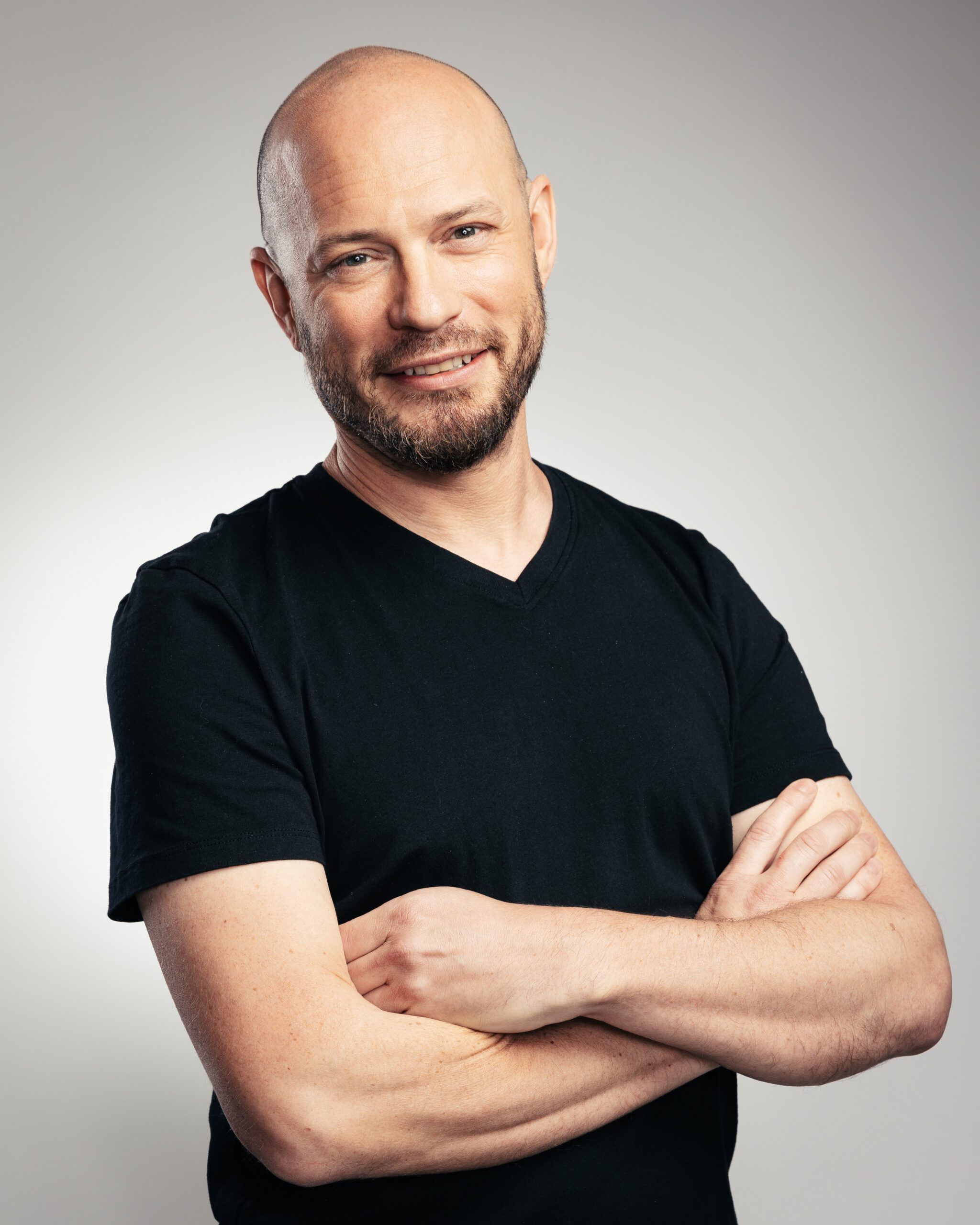
Phillip Stark is the Senior Creative Copywriter at Start-Up Nation Central, a non-profit organization that strengthens Israel’s innovation ecosystem and connects it to global challenges and stakeholders.
